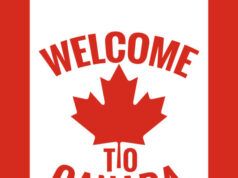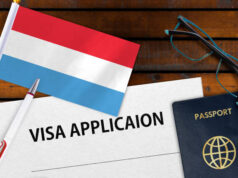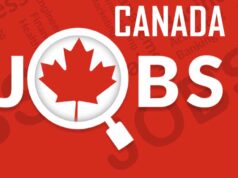Canada is a developed country with many work opportunities and competitive wages. Because of this, it attracts a lot of foreign workers who are hoping to find good jobs there.
The Canadian government has prepared different work visa types in anticipation of this, and the country offers a wide range of temporary and permanent visa possibilities. Therefore, understanding each category is essential for determining which best suits your situation and effectively completing your application.
It would be best if you had a Canadian work permit to find a job or sign a contract to work in the country. Your visa application is submitted concurrently, and the Consular Office will handle it similarly to a work permit application.
Keep reading as we discuss the various visa types in Canada that permit you to work in the country.
What is a Canadian Work Visa?
A Canadian Work Visa is a written authorization that allows a foreign national to gain entry into Canada to work in one of the many industries that require skilled workers.
Canadian work visas come in two different types: temporary and permanent. Temporary Canadian work visas are valid for a specific period, usually one year (and a maximum of three years), and may be renewed upon expiration.
Permanent Canadian work visas allow you to live in Canada indefinitely, although some requirements must be met before applying for this type of visa. Canadian work visas are issued by Citizenship and Immigration Canada (CIC).
Documents Required for a Canadian Work Visa
There are several documents required to apply for a Canadian work visa:
- Letter of Offer: A Letter of Offer is a document that confirms that the applicant will be employed in Canada by an employer. The employer must provide the letter for employer-specific permits. A letter of offer is not required for open work permit holders.
- Proof of Education: Applicants must provide proof of education by submitting transcripts or diplomas to prove they have met the educational requirements set out by Canadian immigration authorities.
- Proof of Funds: An applicant must prove that they have enough money to support themselves during their stay in Canada and sufficient funds for travel expenses to return home at the end of their stay in Canada. This can be done through bank statements, or if an applicant has a sponsor who will cover these expenses, it can also be shown through letters from sponsors stating this fact.
- Proof of Health: Applicants must provide evidence that they are not suffering from any infectious diseases and have a clean bill of health.
- Passport: An applicant must have a valid passport, and it should be valid for at least six months after the date of their intended departure from Canada.
Types of Canadian Work Visas
Employer Specific Work Permit
Employer-specific work permits let you work in Canada for a specific employer in a particular location. They may stipulate other conditions, such as the time you can stay and the work you can perform.
Your employer must give you a copy of your employment contract and a copy of a Labor Market Impact Assessment (LMIA) or an offer of employment letter before you apply for an employer-specific work permit.
Open Work Permit
An open work permit allows you to work for any Canadian employer, except those blocked because they did not follow the rules or are involved in illegal or criminal activities.
Since open work permits aren’t job-specific, your employer doesn’t need to apply for a Labor Market Impact Assessment (LMIA) from Employment and Social Development Canada, offer employment through the Employer Portal, or pay the employer compliance fee.
There are two types of open work permits: unrestricted and restricted. Unrestricted open work permits allow you to work anywhere in Canada, and foreign nationals may apply for this type of permit. Restricted open work permits are based on occupational restrictions or location restrictions.
Other Ways to Work in Canada
Express Entry Program
The Express Entry Program is designed for skilled foreign workers and recent graduates who want to immigrate to Canada permanently. If you qualify, you can bring your spouse and children, apply for Canadian citizenship, and access all government benefits available to citizens.
You can also apply for the Express Entry Program to become a permanent resident. The program is designed to attract immigrants who will contribute to Canada’s economy, so having the right skills and experience to qualify is essential.
To apply for Express Entry, you must complete a profile in the Express Entry pool system. Once you’ve done this, you will be entered into a pool of eligible candidates for fast-tracked processing.
If Citizenship and Immigration Canada (CIC) chooses your profile, you will receive an invitation to apply for permanent residence in Canada.
Working Holiday Visa
The Working Holiday Visa program allows you to live and work in Canada for up to 12 months. You have to be between 18-35 years old to qualify for applying.
This visa allows young people to explore Canada and gain valuable work experience. It also helps them build connections with potential employers who may be hiring when they return home.
There are restrictions on the type of work you can do in Canada, but this is a great way to start your Canadian immigration journey. You can apply online or at any Canadian consulate or embassy abroad before you leave on your trip.
Only citizens of specific countries can apply, such as Australia, Denmark, Belgium, France, Germany, Mexico, Spain, Greece, and the United Kingdom.
Post-Graduation Work Permit
The Post-Graduation Work Permit program allows students who have completed their studies at a Canadian university or college with a degree or diploma to stay in Canada for up to three years after graduation.
To qualify, you must have completed a degree or diploma from a Canadian post-secondary institution and studied full-time for at least eight months of your program. With this permit, you can work in any job, but depending on your field of study, it may be limited.
If you’re studying science, technology, engineering, or math (STEM), you may only be able to work in certain occupations in Canada. This is because these jobs are considered “skilled” positions that need to be filled by people who have these credentials.
Federal Skilled Worker Program
The Federal Skilled Worker program allows you to apply if you’re not currently living in Canada but have at least one year of skilled work experience, speak English or French well enough for daily communication, and meet other essential requirements, like finance.
You will be assessed on your education, work experience, age, language ability, arranged employment in Canada, and adaptability. You must meet minimum entry requirements for each category and pass all parts of the Canadian Language Benchmark test.
The Canadian government will look at your overall profile when deciding whether or not you can come to Canada. If there are no other qualified candidates, you may be selected for immigration without having an arranged job offer in Canada.
Federal Skilled Trades Program
If you’re a skilled trades-person, like a mechanic or electrician, you can work in Canada under the Federal Skilled Trades program.
It’s a more straightforward process than other programs because there are fewer requirements, but it still takes work: you need to prove that your skills are in demand here and that you can provide them in a way that will benefit Canadians.
You also need to meet some basic requirements: you must be at least 18 years old, have at least two years of full-time work experience in your field within the last 5 years, and have at least two years of full-time education (or an equivalent combination) in your field within the previous 10 years.





